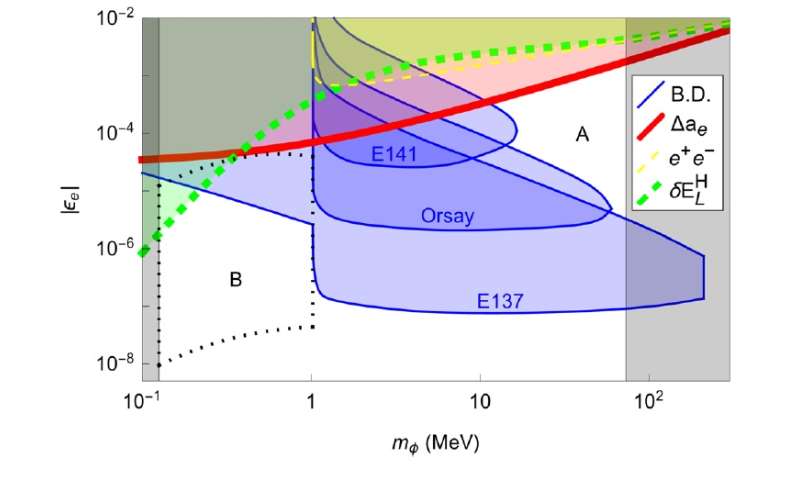Best of Last Week – New boson predicted, a mysterious weather disruption and debunking the 'five second rule'

(ScienceX)—It was another good week for physics as a trio of theorists with the University of Washington, Yu-Sheng Liu, David McKeen and Gerald A. Miller came up with the idea of a hypothetical new particle that could solve two major problems in particle physics—the proton radius puzzle and a discrepancy in muon anomalous magnetic moment measurements that differ significantly from standard model predictions. Also, researchers with the University of Witwatersrand in South Africa predicted the existence of a new boson—one named the New Madala—they believe it might assist in the understanding of dark matter. And a combined team of researchers in the U.S. demonstrated that it may be possible for time crystals to physically exist after all. Also, the enigma machine took a quantum leap as a team at the University of Rochester demonstrated that an unbreakable encrypted message could be sent with a key that was far shorter than the actual message—a first.
It was also a big week for space news as Mars rover Curiosity viewed spectacular layered rock formations and sent us back the pictures. And a combined team with Rice University and Woods Hole Oceanographic Institute suggested that Earth's carbon points to a planetary smashup between Earth and a Pluto-like embryonic planet approximately 4.4 billion years ago. And new research by a team at the University of Surrey revealed hundreds of undiscovered black holes in a globular cluster of stars.
In other news, a team at the University of Oxford and the Met Office reported that an unprecedented atmospheric behavior disrupted one of Earth's most regular climate cycles—one of the planet's most repeatable atmospheric patterns, the quasi-biennial oscillation, was seen to break down earlier this year, and the team does not know why but believes it could signal major weather disruptions this winter. Also, a team of researchers at The Scripps Research Institute announced that they had found a way to reverse alcohol dependence in animal models.
And finally, if you are an adherent of the notion that if you pick up a bit of food that has dropped onto the floor quickly enough, you can eat it without worry of germs, you may not want to hear about the results of experiments by a team at Rutgers—they have debunked the "five-second rule", finding that at times, bacteria can transfer to an object in less than a second.
© 2016 ScienceX